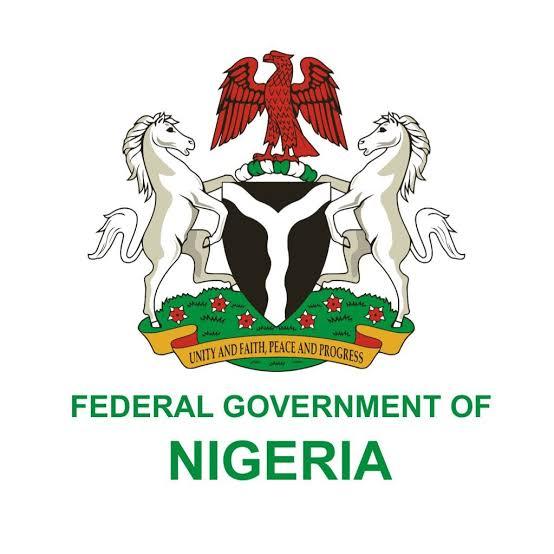Kwara State, located in North Central Nigeria, is taking bold steps toward sustainable development and economic growth. Under the leadership of Governor AbdulRahman AbdulRazaq, the state has unveiled a comprehensive and ambitious 2025 budget tagged “Budget of Economic Expansion and Sustainable Development.” The budget, initially proposed at ₦540.3 billion, was later approved by the Kwara State House of Assembly with an upward revision to ₦584.69 billion, signifying a strong commitment to development and fiscal expansion.
This financial blueprint lays out detailed plans for capital projects, human development, infrastructure renewal, education, health, and economic empowerment, among other key priorities. Let’s break down the major components of the 2025 state allocation for Kwara.
Overview of the 2025 Kwara State Budget
The approved budget for 2025 is structured as follows:
-
Total Budget: ₦584.69 billion
-
Capital Expenditure: ₦379.37 billion (64.9%)
-
Recurrent Expenditure: ₦205.31 billion (35.1%)
The emphasis on capital expenditure highlights the administration’s strategic focus on infrastructure and developmental projects that are expected to spur economic activities, improve service delivery, and provide long-term benefits to residents.
Revenue Sources: How Kwara Plans to Fund Its Budget
To fund this massive fiscal plan, the state government outlined several sources of revenue, both internal and external. Here’s a breakdown:
-
Statutory Allocations from the Federation Account: ₦302.63 billion
-
Internally Generated Revenue (IGR): ₦97.37 billion
-
Grants and Aids: ₦52.03 billion
-
Domestic and Foreign Loans: ₦70.43 billion
-
Other Receipts: ₦20 million
-
Opening Balance: ₦62.20 billion
This funding plan reflects a blend of traditional revenue sources and strategic borrowing to cover the projected deficit of ₦70.45 billion.
Sectoral Allocations and Priority Areas
1. Education – ₦94.77 Billion (16.2%)
Education continues to receive prime attention in Kwara’s budget, with ₦94.77 billion allocated to boost learning infrastructure and improve education delivery. Plans include:
-
Construction and renovation of schools across all senatorial districts
-
Recruitment and retraining of qualified teachers
-
Distribution of teaching and learning materials
-
Establishment of a new University of Education, aimed at raising the quality of teacher training and research
The administration believes that investment in human capital is essential to long-term development.
2. Health Sector – ₦61.72 Billion (10.56%)
Healthcare has been allocated ₦61.72 billion to improve accessibility and quality of service delivery. The budget covers:
-
Upgrading of existing healthcare facilities and hospitals
-
Procurement of modern medical equipment
-
Expansion of the Kwara State Health Insurance Scheme
-
Deployment of more medical personnel and community health initiatives
These investments are expected to reduce disease burden and improve the overall health indices in the state.
3. Infrastructure Development – ₦102.34 Billion (17.51%)
A significant portion of the budget—₦102.34 billion—is earmarked for infrastructural renewal. The government plans to:
-
Continue the construction and rehabilitation of roads, bridges, and culverts
-
Build 250 new mass housing units to address the housing deficit
-
Upgrade court facilities and public buildings
-
Expand the urban renewal program to include township beautification and water access in rural areas
Kwara is betting big on infrastructure to drive private sector investment and job creation.
4. Social Services and Safety Net Programs – ₦190.5 Billion (32.5%)
Kwara has dedicated over a third of its budget to social services, including:
-
Youth empowerment and skill acquisition initiatives
-
Women-led SME support programs
-
Direct cash transfers and food relief for the poorest households
-
Community development projects to enhance local governance
This social intervention package is designed to cushion the effects of inflation and economic hardships on vulnerable populations.
Digital Economy and Innovation
Recognizing the importance of a digital future, the 2025 budget also makes provisions for:
-
Establishing innovation hubs and tech incubation centers
-
Expanding internet access in public schools and institutions
-
Training youth in software development, AI, and other in-demand tech skills
This is part of a larger strategy to position Kwara as a technology-driven state ready to compete in a digital economy.
Agriculture and Food Security
To address food security, the government plans to:
-
Support smallholder farmers with inputs, seedlings, and equipment
-
Expand access to credit for agribusinesses
-
Modernize irrigation infrastructure
-
Develop agricultural value chains and market access
Agriculture remains one of Kwara's strongest economic sectors, and this investment aims to ensure productivity and reduce food inflation.
Transparency and Accountability
Governor AbdulRazaq has emphasized transparency in the implementation of the budget. Mechanisms such as public expenditure tracking, open contracting, and citizen participation through town halls have been adopted to ensure accountability.
The Kwara State Bureau of Public Procurement and the State Fiscal Transparency Accountability and Sustainability (SFTAS) program have also been empowered to monitor budget performance closely.
Challenges in Budget Implementation
Despite the robust plans, some observers have raised concerns about implementation gaps. A recent report by Dataphyte revealed that no actual expenditure had been made on key areas like school rehabilitation and rural roads as of Q1 2025.
These delays, if not addressed, could hinder the realization of the budget’s ambitious goals. Factors such as procurement bottlenecks, delayed releases, and capacity limitations within MDAs (Ministries, Departments, and Agencies) need to be resolved.
Conclusion: Can Kwara Deliver?
The 2025 Kwara State budget presents a comprehensive and well-thought-out roadmap for economic growth and social inclusion. With a clear focus on capital development, education, health, and social welfare, the AbdulRazaq administration is setting the stage for lasting transformation.
However, the success of this plan hinges not just on the allocation of funds but also on how effectively the projects are implemented, monitored, and evaluated. Timely disbursement, efficient public service delivery, and active civic engagement will be key in turning this blueprint into real-world outcomes.
For citizens, CSOs, and development partners, now is the time to actively monitor the budget’s implementation and hold the government accountable to its promises.











